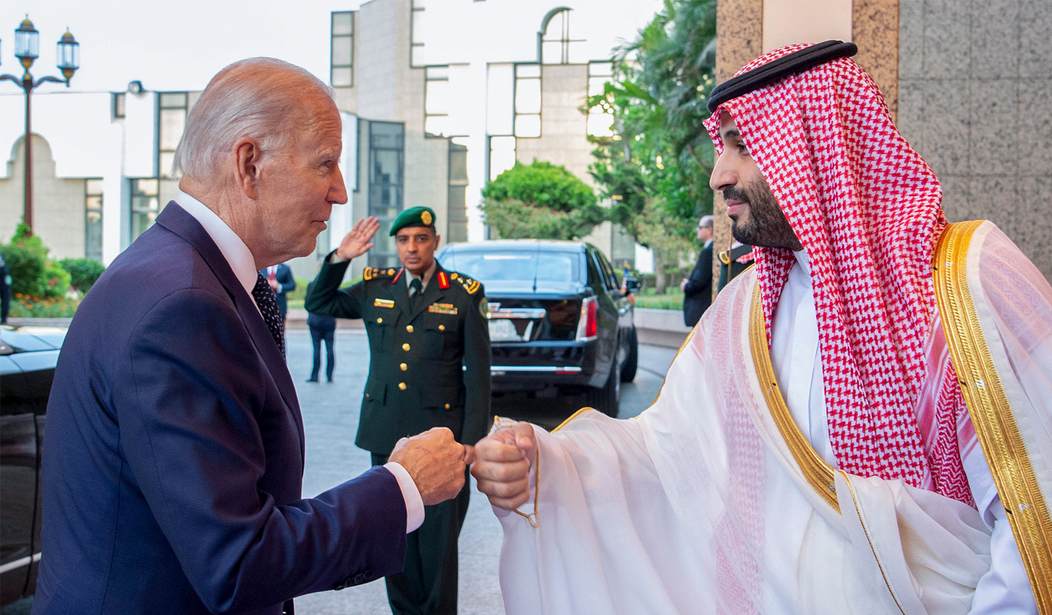The petrodollar — a deal, not a currency — was born out of the late 1970s energy crisis. The United States, having just gone off the gold standard, struck a deal with Saudi Arabia — one of the largest producers of petroleum in the world — that meant the Saudis would price their oil exclusively in United States dollars and that any surplus revenues from their sales of petroleum would be invested in U.S. Treasury bonds. This had several effects: It ensured the U.S. a supply of oil, it established the U.S. dollar as the global reserve currency, and it helped the U.S. maintain what was, by today's standards, its modest federal debt.
The 50-year-old petrodollar agreement between the U.S. and Saudi Arabia was just allowed to expire. The term “petrodollar” refers to the U.S. dollar’s role as the currency used for crude oil transactions on the world market. This arrangement has its roots in the 1970s when the United States and Saudi Arabia struck a deal shortly after the U.S. went off the gold standard that would go on to have far-reaching consequences for the global economy. In the history of global finance, few agreements have wielded as many benefits as the petrodollar pact did for the U.S. economy.
Those benefits are gone now. It's difficult to foresee what the consequences will be for the U.S. economy, but it's not likely to be anything good. While this is liable to affect the prices of petroleum we import, making it more expensive by weakening the dollar, we do have domestic resources that can address that to some degree. This may even strengthen the market for American oil and gas in the short term. Petroleum is a fungible commodity with a global price, and a weaker U.S. dollar will, in the absence of the petrodollar, make American exports more attractive on global markets. Maybe. But the rest of the effects cannot so easily be dismissed.
See Related: Oil Prices Expected to Rise Following Iran's Attack on Israel
Biden Admin Locking Down HALF of Alaska's National Petroleum Reserve From Energy Development
Oil being denominated in U.S. dollars alone has significance beyond the categories of oil and finance. By mandating that oil be sold in U.S. dollars (DXY), the agreement elevated the dollar’s status as the world’s reserve currency. This, in turn, has profoundly impacted the U.S. economy. The global demand for dollars to purchase oil has helped to keep the currency strong, making imports relatively cheap for American consumers. Additionally, the influx of foreign capital into U.S. Treasury bonds has supported low interest rates and a robust bond market.
There are a couple of points to be made here.
First, the effect on the dollar: Weakening the dollar, as this is bound to do, will have one major effect, namely, raising the price of anything imported into the United States. And from whom does the United States import the most goods, from knick-knacks to industrial electrical transformers? China. China, we may well remember, is a country that is not particularly friendly towards the United States. Second, the end of the dollar as the global reserve currency will almost certainly lower foreign investment in the U.S. Treasury bonds that are largely used to finance America's runaway spending. Interest rates, inflation, bond markets, and the public debt are all in for a sudden, dramatic readjustment, and it won't be good for American consumers.
The petrodollar’s expiration could weaken the U.S. dollar and, by extension, the U.S. financial markets. If oil were to be priced in a currency other than the dollar, it could lead to a decline in global demand for the greenback. This, in turn, could result in higher inflation, higher interest rates, and a weaker bond market in the United States.
For most of the postwar world, the U.S. dollar has been the global reserve currency. Consider what currency is now liable to replace it: The ruble? The Saudi riyal? The renminbi? None of those bode well for the United States — nor does the lack of any global reserve currency, a situation that will not last; nature, after all, abhors a vacuum.
The expiration of the petrodollar agreement represents a significant shift in global power dynamics. It highlights the growing influence of emerging economies and the changing energy landscape. While the full implications of this shift remain to be seen, investors should at least be aware that on a macro level, the global financial order is entering a new era. The U.S. dollar’s dominance is no longer guaranteed.
The result of this is likely to be a dramatic change in the global order. The United States retains a few advantages, though: We are one of the few nations in the developed world that is not facing a major demographic apocalypse. We still have an industrial base, and given America's vast sweeps of arable land, nobody in the United States is going to go hungry. We still have ample resources for oil and natural gas, not least of which are right here in Alaska.
The petrodollar agreement is no more. The effects on the global economy in general and the American economy in particular are not yet known, but as we can see, they are unlikely to be good, particularly for the United States. The century ahead may look very, very different from the century past.
Predictions are hard to make, especially about the future, but the ending of this fifty-year agreement will change things, probably dramatically. The United States is almost certainly in for a downturn if this agreement remains defunct. A recession, possibly even a prolonged depression, is likely unless some way can be found to strengthen the U.S. dollar.
Never before has this seemed more appropriate.














Join the conversation as a VIP Member